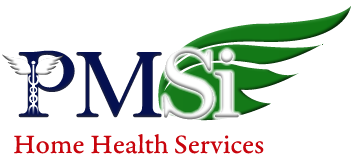Primary Medical Staffing, Inc. has been providing care for clinically complex pediatric and adult patients, in home since 2006. We are dedicated to the belief that home nursing care meets a vital need for the physical, psychological, spiritual and social well-being of our patients. Our primary goal is to provide the highest level of patient care while striving to help the family unit remain intact.
We take pride in staffing our cases with trained professionals. Our success has been due, in large part, to the unwavering dedication of our in-home clinical staff. Many members of our professional team have been with us since we open in 2005. It’s that kind of long term commitment that constitutes the “Action Difference”, the difference you will experience working with our team.
Continuous Care
Our agency provides skilled, continuous-care nursing to children and adults with complex medical problems. Primary Medical Staffing, Inc. is a leader in caring for technologically dependent patients who require constant, highly-skilled nursing support. This support includes management of central lines, mechanical ventilation and specialized nutrition, which in turn allows for earlier discharge of medically fragile patients from traditional inpatient settings.
Our agency uses “core staffing.” Each patient is cared for by their own group of primary nurses. We believe that by providing this type of staffing greatly improves the continuity and quality of care. When selecting staff, it is important that there is compatibility between patient, family and nurse. Our patient’s needs are always “our priority”
Many health care providers are unaware that the recognition of acute respiratory distress syndrome (ARDS) in 1967 was a key factor in crafting intensive care units (ICUs) as they are known today. ARDS is the most devastating condition underlying respiratory distress or failure. It causes calamitous pneumonia, shock, sepsis, and severe distress in ~150,000 people annually, the majority of whom have had no previous lung disease. If you have a loved one who is with one of these conditions you may qualify for PRIVATE DUTY NURSING. Respiratory Distress or failure include cardiovascular disease (Valvular Disease, Coronary Atherosclerosis, Postoperative Coronary Care); Neurologic Disorders (Cerebrovascular Accident, Subarachnoid Hemorrhage, Spinal Cord Injuries, Lou Gehrig’s Disease); and Chronic Obstructive Pulmonary Disease and Pneumonia.
Key Benefits
Highly trained staff of nurses
Peace-of-mind for the patient and family
Capabilities
Nurse Qualifications
We are staffed with the highly trained nurses, skilled in the home-care industry. Our nurses are highly motivated individuals who care about patient and the family they serve. The nursing staff works together to develop continuity in rehabilitation and health management plans.
The Duties of a Home Health Pediatric Nurse
- Home health pediatric nurses care for children in their homes. They may care for children after discharge from a hospital or they may care for children whose families prefer them to receive care at home instead of being admitted to a hospital. Children may have serious illnesses or disabilities or they may be recovering from serious injuries or extensive surgery.
- Care Planning
Home health pediatric nurses develop a plan of care for each child they treat. The plan of care includes how often nurses will visit, whether any other home health services are needed such as home health aides, occupational therapists or physical therapists, and what services will be provided. Care plans are reviewed and updated periodically.
Assessment
Home health nurses assess their patients’ conditions during every visit. The assessment may include taking a child’s vital signs including temperature, pulse, blood pressure and respiratory rate. The home health pediatric nurse will examine any wounds or surgical incisions, will weigh the patient, and ask about the patient’s diet, bladder and bowel habits, and general health status. Home health nurses note any changes in the patient’s condition and report any significant changes to the child’s physician.
Administration of Medication
Nurses administer medication to pediatric patients in the home setting, including giving medications by injection or intravenously. Nurses may teach parents to give their children these medications as well, since nurses may not be present in the home around the clock. Nurses may also administer tube feedings to pediatric patients in the home. Nursing Procedures
Home health nurses perform a number of basic nursing procedures in the home setting, like starting intravenous lines, placing nasogastric feeding tubes, placing Foley catheters to empty a patient’s bladder, drawing blood samples and changing dressings. Education
Home health pediatric nurses educate parents about their children’s care. They may teach parents how to administer medications by injection or IV, how to administer tube feedings, how to catheterize a child, how to change dressings or how to monitor their child’s vital signs. They may educate parents about their child’s conditions and medications. If the child is old enough, nurses may also educate the child about his condition, medications and restrictions and may teach the child how to perform simple procedures like giving himself an insulin injection or using a catheter to empty his bladder. Coordination of Care
Home health nurses often coordinate care between other health care professionals. For instance, if the child’s physician did not order physical therapy or a home health aide, the nurse can make a referral for these services if her assessment determines a child might benefit from them. If home health aide services are needed, the home health nurse writes a plan of care for the aide to follow. Home health nurses communicate with physicians and other health care providers. They may also do things like schedule medical appointments for patients.
Reference www.ehow.com
- A pediatric home care nurse provides medical care for children who have recently been released from the hospital or whose family would rather have them treated for an illness in the comfort of their own home. This care is not intended to be long-term; rather it is meant to help the child’s caregivers become educated about how to take care of the child’s needs without a medical professional being present. These nurses are highly trained individuals who specialize in caring for children who are in need of medical care for a variety of reasons.
They come into the home for an allotted amount of time each week and perform certain tasks while educating the child’s caregivers on how to do the same.
Patient Assessments
- The first thing a pediatric home care nurse must do is assess the patient’s immediate medical needs. One such need is wound care. The wound could require cleaning and dressing. Another problem that could require the attention of the nurse would be care of an incision that was the result of surgery. The nurse may need to start an IV or change the site of the IV because of venous problems, such as rupturing, bruising or phlebitis. If the child has a Foley catheter, it may need to be changed or emptied. All of these procedures will be done while the nurse is actively teaching the child’s caregivers how to do the same procedures.
Administering Medication
- It is the duty of a pediatric home care nurse to administer any medication that is needed for the child. The nurse will need to explain what each medication is as well as its purpose. She will also have to explain any side effects that could occur with the medicine and if there is any possible way to alleviate the severe side effects. The medication must be administered in exact dosages, which the nurse will explain to the caregivers. He will explain the importance of each medication, as well as its desired result. The nurse will explain the child’s Nutritional needs and restrictions, as well as any specific dietary requirements
Home Situation Assessment
- The nurse will need to assess the home to make sure the child is able to recover in the best possible way. If there is a need for any type of medical equipment, it is the nurse’s job to recommend it to the caregivers. The nurse will also work closely with the child’s caregivers to educate them on how to properly perform physical therapy that will be beneficial to the child’s recovery. It is also very important that the nurse explain the best way to safely bathe the child and address any other hygienic issues.
reference ehow.com



